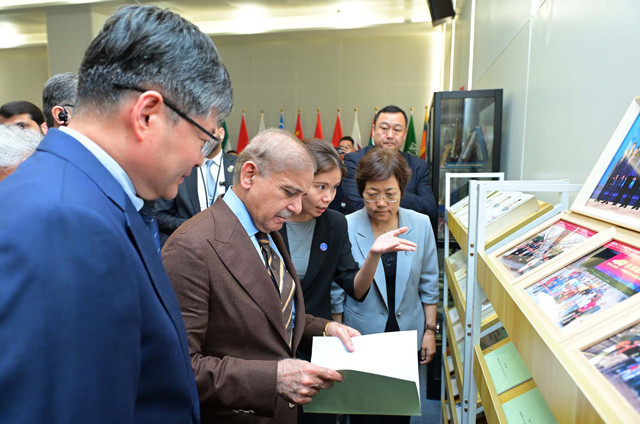PM Shehbaz to send 1,000 students to China for agricultural training
Premier invites Northwest Agriculture and Forestry University to open a campus in Pakistan

Prime Minister Shehbaz Sharif has decided to send 1,000 students from Pakistan to China’s Yangling Agricultural Demonstration Base for advanced agricultural training at the government's expense.
According to Express News, Prime Minister Sharif, who is currently on an official visit to China, made this decision on Saturday while touring the Yangling Agricultural Demonstration Base in Xi'an. He instructed the Pakistani ambassador and relevant officials to finalise the project with their Chinese counterparts.
During the visit, the prime minister invited the Northwest Agriculture and Forestry University to open a campus in Pakistan, expressing the government’s willingness to provide full support in this endeavour.
Prime Minister Sharif was also shown around various sections of the base, including the Pakistani Pavilion, where local products were on display. He was briefed on the collaborative agricultural research conducted at the Yangling Agricultural Demonstration Base, which involves 26 countries. Notably, Pakistan was the first country to initiate collaboration with the base.
Also read: PM Shehbaz, President Xi agree to upgrade CPEC, advance development in second phase
The briefing included information about Pakistani scientists and universities participating in the research efforts.
“Pakistan is an agricultural country,” said Prime Minister Sharif. “The government is striving for innovation in agriculture to increase per-acre yield. Enhancing the processing of Pakistani agricultural products can boost our exports, which is a top priority for the government.”
The prime minister also visited a modern plant production factory, where he observed practical demonstrations of various stages of vertical farming techniques.
Federal Ministers Khawaja Muhammad Asif, Ahsan Iqbal, Muhammad Aurangzeb, Attaullah Tarar, Dr Musadik Malik, and Rana Tanveer Hussain accompanied the prime minister on this visit.



















COMMENTS
Comments are moderated and generally will be posted if they are on-topic and not abusive.
For more information, please see our Comments FAQ